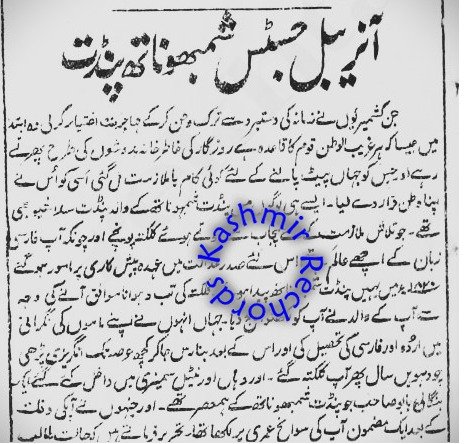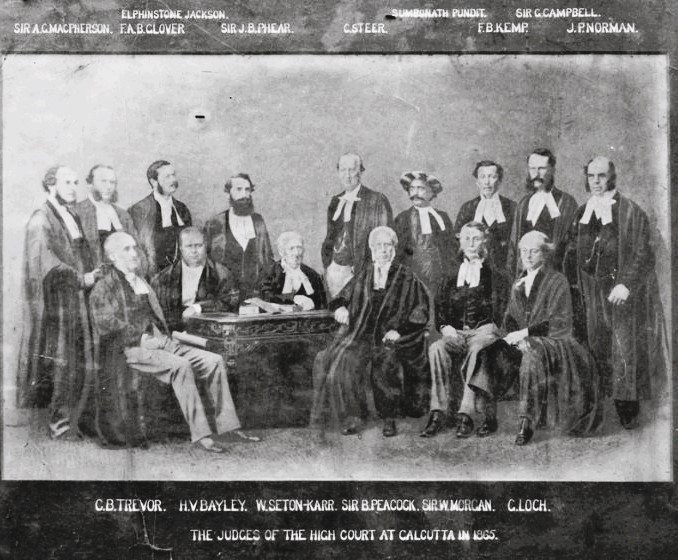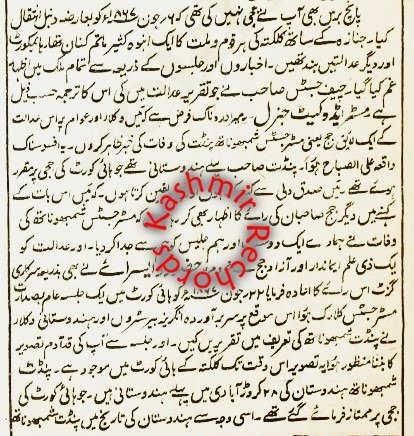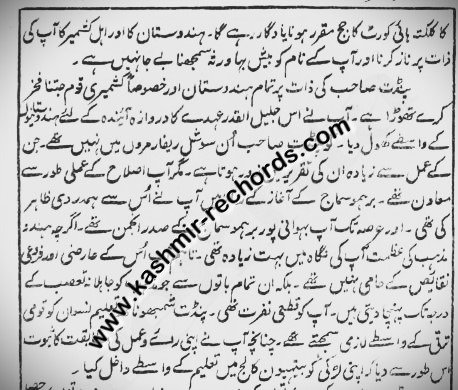(Kashmir Rechords Exclusive)
In an unprecedented achievement, Justice Shambunath Pandit, a Kashmiri Pandit, became the first Indian judge of the Calcutta High Court in 1863. His remarkable tenure, unfortunately cut short by his death in 1867 at the age of 47, left an indelible mark on India’s legal history.

A Journey from Kashmir to Kolkata
Justice Shambunath Pandit’s story began with his father, Sadashiv Pandit, who migrated from Kashmir in the late 18th century. Moving through Punjab and the United Provinces (now Uttar Pradesh), Sadashiv finally settled in Bhowanipur, Kolkata. Shambunath’s early education in Urdu, Persian, and English took him to Lucknow and Benaras. By 14, he was back in Calcutta, excelling in literature at the Oriental Seminary.
A Pillar of Legal and Social Reform
Justice Pandit’s contributions went beyond the courtroom. He was a founding member of the British Indian Association and played a key role in establishing the Jnan Prakasika Sabha (Truth Revealing Society), which evolved into the Bhowanipur Brahmo Samaj. His advocacy for female education was significant; he supported John Drinkwater Bethune’s school for girls and actively participated in Vidyasagar’s widow remarriage campaign.

A Distinguished Legal Career
Starting as an Assistant to the Sadar Court Record-keeper, Justice Pandit quickly rose through the legal ranks. He published notable works, including “Notes and Comments on Bacon’s Essays,” and became a distinguished criminal lawyer. Appointed as Junior Government Pleader in 1853 and Senior Government Pleader in 1861, he joined the Calcutta High Court as a judge in 1863, making significant legal contributions, particularly in resuming Lakhiraj lands.
Legacy and Recognition in Kolkata
Justice Pandit’s legacy endures in Kolkata, where a major government hospital, setup in 1902 and a prominent road are named after him. His commitment to social progress and charitable disposition were well-regarded, spending a third of his income on medicines for the poor and supporting orphans and underprivileged students

The First of Many Legal Luminaries
Appointed on February 2, 1863, Justice Pandit paved the way for future legal giants like Justice Dwarka Nath Mitter, Sir Ashutosh Mookerjee, and Justice P.B. Chakravartti, the first Indian permanent Chief Justice of the Calcutta High Court. The Calcutta High Court, established alongside the High Courts of Bombay and Madras, remains a cornerstone of India’s judicial system.

An Untimely Demise
Justice Pandit’s life was tragically cut short when he succumbed to a carbuncle on June 6, 1867. His passing was deeply mourned by the judges of the High Court, his friends, and admirers. He left behind two sons, Pran Nath Pandit and Bishambhar Nath Pandit, continuing his distinguished lineage.

Justice Shambunath Pandit’s trailblazing journey from a Kashmiri family to a revered High Court judge underscores his enduring legacy in Indian history.

